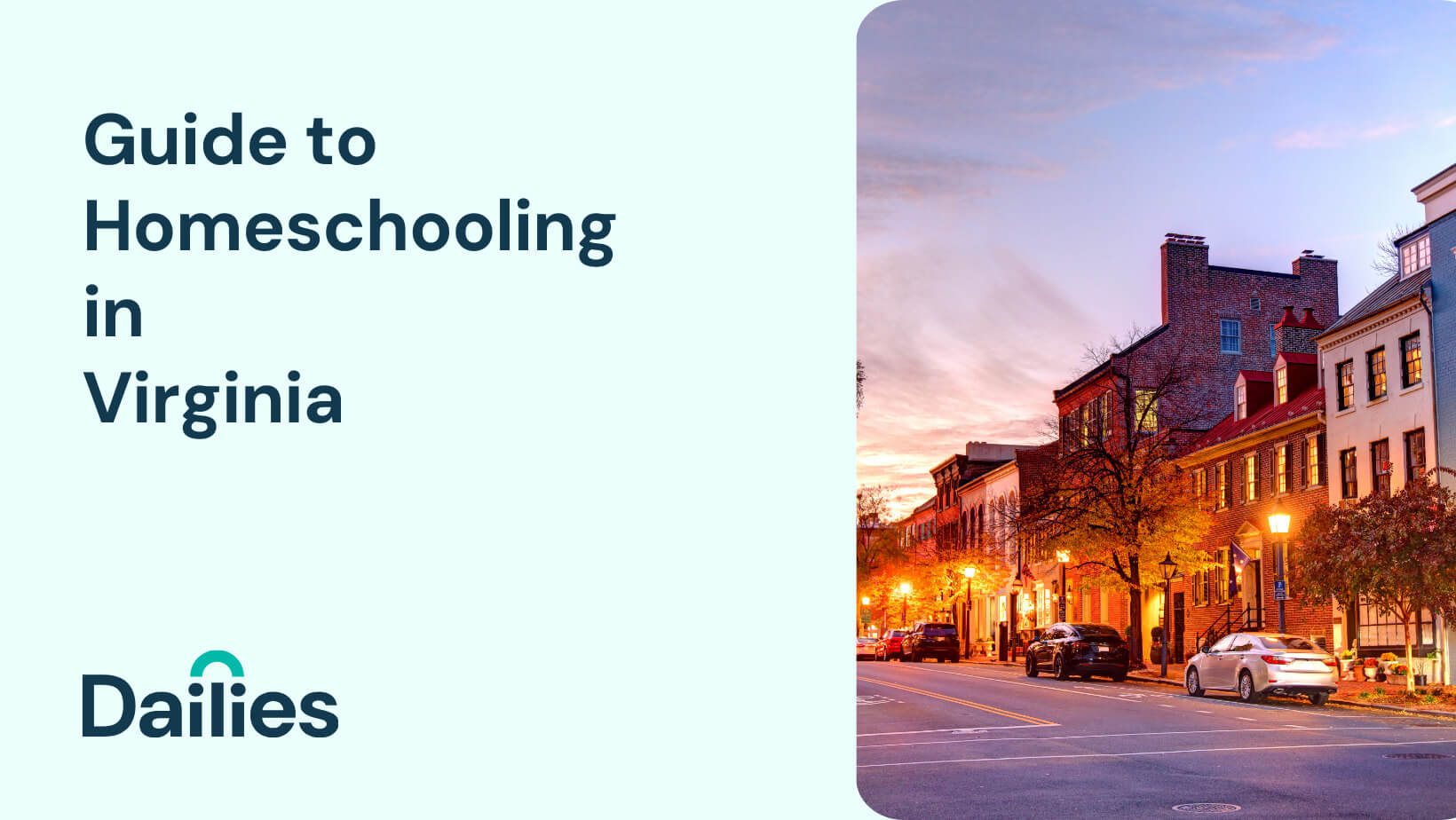Written by
Meghan Bouboulinis Read all posts by this author
Guide to Homeschooling in Virginia
The decision to forego traditional schooling can be made for any number of reasons; some families feel dissatisfied with school systems or may have had a negative experience, some families prefer a more personalized, flexible education, and oftentimes military families find themselves moving too frequently to feel settled. These reasons (and so many more) are where we come in! Dailies provides a full-class, researched backed, learning program with customized support and feedback with expert guidance on state-by-state legal and compliance issues.
You’ve Decided to Homeschool in Virginia, What’s Next?
Parents in Virginia must ensure that their child is in compliance with the state compulsory attendance law when they reach the age of 5, either on or before September 30 of any school year. The attendance law requires that a child attend a public school, private school, or receive an education through an alternative school attendance. Home Instruction, or, homeschooling, is an example of a state approved alternative. Families who choose to homeschool in Virginia will maintain close contact with their local school division throughout their home education journey.
In order to officially get started with home instruction in Virginia, parents must provide an annual notice of intent to their local school division by August 15th. This notice of intent is similar to those of other states, but in Virginia it must be done every year. If a family moves into a new school district or they begin homeschooling after the school year has begun, they must notify the school division as soon as possible and comply with the regulations within 30 days.
Parent Criteria for Homeschooling in Virginia
Along with notice of intent to homeschool, parents must also submit evidence to their local school division that they meet one of the the criteria for homeschooling their child:
- Option 1: The parent holds a high school diploma or higher
- Option 2: The parent meets the qualifications of a teacher as described by the Virginia Board of Education
- Option 3: The parent provides the child with a program/curriculum that may be delivered through a correspondence course or distance learning program (like Dailies!)
- Option 4: The parent provides evidence that they can provide an adequate education for the child
The Code of Virginia requires that parents provide the school division with the following:
- Evidence of having met one of the parent criteria listed above
- An annual notice of intent to homes instruct
- A list of the subjects to be studied for the upcoming school year
- Evidence of academic progress at the end of the school year, by August 1
Evidence of Home Instruction
Evidence of progress must be submitted by August 1st following the school year in which the child has received home instruction. Evidence of progress can include:
- Evidence of a composite score in or above the fourth stanine on any standardized test
- An equivalent score on the ACT, SAT, or PSAT
- An evaluation or assessment in which the school division superintendent determines that the child is achieving an adequate level of educational growth including; a letter of evaluation from a person licensed to teach in any state or a report card from a community college or home-education program (again, like Dailies!)
Dailies, Virginia, and Home Instruction
As you can see, Virginia has quite a few more requirements when it comes to home schooling than other states we’ve discussed. The decision to home instruct does not come lightly, for parents who are interested in getting started, the best place to start would be The Virginia Department of Education, or us, Dailies! We are standing by and ready to help answer any questions or concerns you may have.

